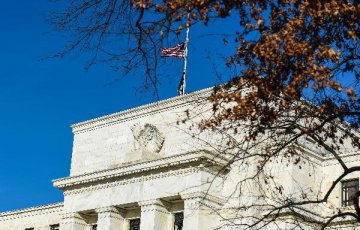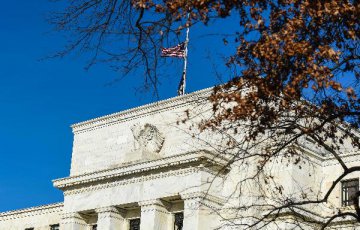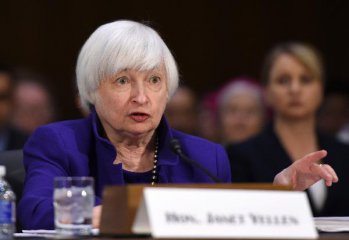WASHINGTON, Dec. 26 (Xinhua) -- The U.S. Federal Reserve's policy-making committee, the Federal Open Market Committee (FOMC), could see more consensus on monetary policy in 2020 following the rotation of committee members, local media reported on Thursday.
Chiefs of the Cleveland, Philadelphia, Dallas and Minneapolis reserve banks will join the FOMC in January to get a formal vote on monetary policy decisions, while leaders of the Boston, Chicago, Kansas City and St. Louis reserve banks will step off the panel, The Wall Street Journal reported.
The FOMC consists of all members of the Washington-based Fed board of governors, the president of the Federal Reserve Bank of New York and four of the remaining eleven reserve bank presidents, who serve one-year terms on a rotating basis, according to the Fed's official website.
The FOMC cut interest rates three times in 2019 amid rising concerns over trade tensions, a slowing global economy and muted inflation pressures, but committee members were much divided over these moves.
Boston Fed President Eric Rosengren and Kansas City Fed President Esther George had voted against cutting rates as they preferred to leave rates unchanged, while St. Louis Fed President James Bullard dissented because he favored bigger rate reductions.
Fed officials' interest rate forecasts released in December showed that most officials expected no rate changes in 2020. Public comments recently made by the four new FOMC members next year suggested they were likely to back this stance, according to the report.
Dallas Fed President Robert Kaplan said this month he saw little reason to change interest rates in 2020. Cleveland Fed President Loretta Mester and Philadelphia Fed President Patrick Harker both expressed skepticism in 2019 over the need for rate reductions, the report said.
"There's going to be less room for discord now that the Fed has gotten to where it is at," Tim Duy, an economics professor at the University of Oregon, was quoted as saying.
While FOMC dissents rarely alter the path of monetary policy, they can shine a light on the breadth of the debate among Fed officials, according to the report.





















Latest comments